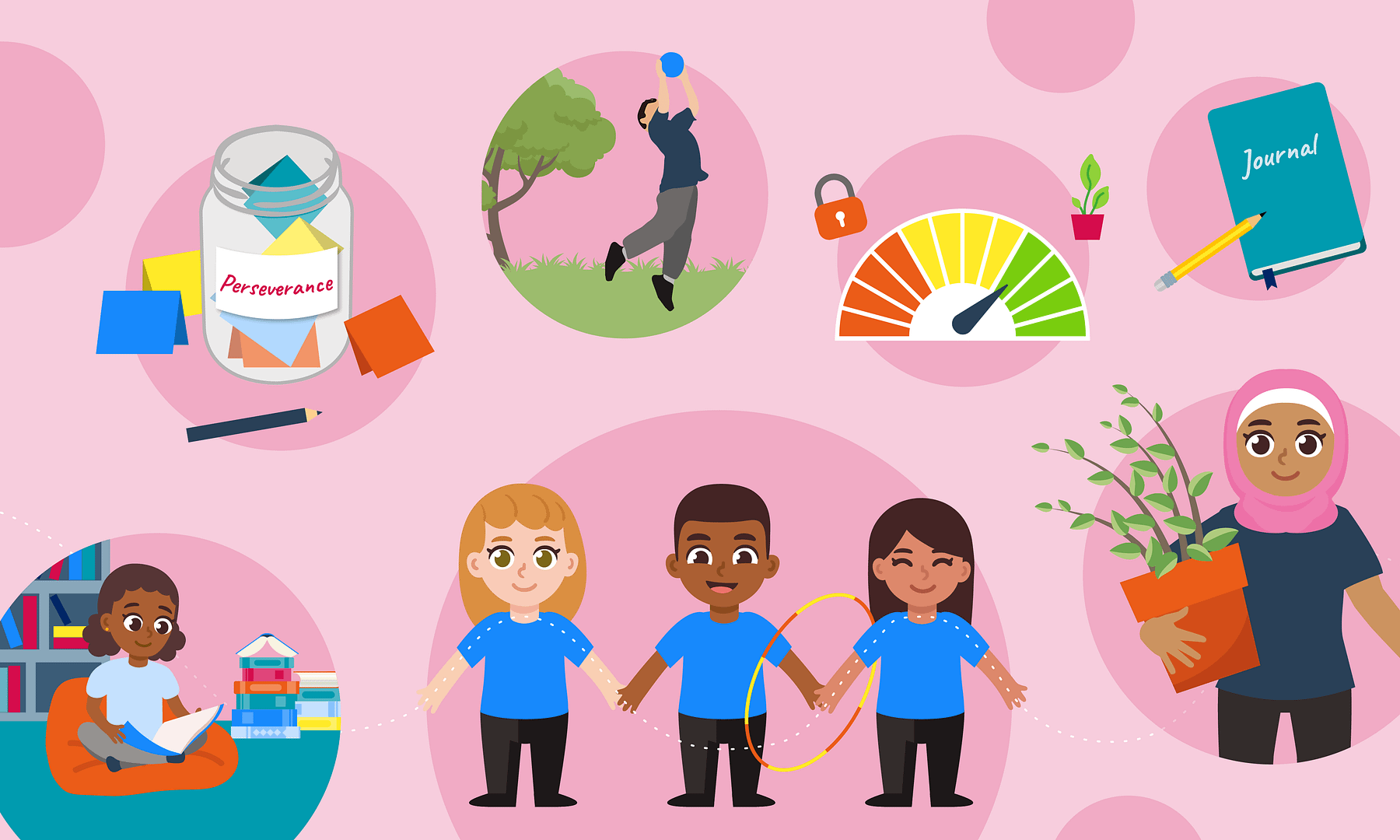Practical Ideas for Promoting Wellbeing During Children’s Mental Health Week
Written by Kapow Primary's RSE Team
Published on 20th January 2025
Last Updated: 7th May 2025
Written by Kapow Primary's RSE Team
Published on 20th January 2025
Last Updated: 7th May 2025

Children’s Mental Health Week is an annual initiative dedicated to highlighting the importance of mental health in children and young people. Schools can use this event to teach about wellbeing by introducing activities and lessons that enhance emotional awareness, build resilience, and strengthen positive relationships.
Research by Oxford Impact highlights several benefits of developing children’s wellbeing:
The report emphasises the value of whole-school approaches and integrating wellbeing into the curriculum for lasting positive impacts.
Below are some suggestions for teaching Wellbeing to primary-age children, not just during Children’s Mental Health Week but all year round.
Self-awareness is the cornerstone of emotional intelligence. Help pupils reflect on their emotions and strengths with activities such as:
Tip: Incorporate activities into morning routines to help pupils start the day with a positive mindset.
Resilience is the ability to bounce back from challenges, and it’s a skill that can be taught. Incorporate activities that promote perseverance and problem-solving:
For more ideas, read our blog on Building Resilience In Primary School Children.
Tip: Praise effort rather than outcomes to reinforce the value of persistence.
Mindfulness helps children manage stress and stay focused. Use these simple techniques:
Tip: Schedule short mindfulness breaks throughout the day to help pupils reset and refocus.
The ‘Take notice’ lessons in the Kapow Primary Wellbeing scheme of work feature mindfulness and relaxation techniques for children.
The Interim Curriculum and Assessment Review (2025) has brought to light critical feedback from the educational community about assessment, notably the emotional and psychological strain it places on pupils. This stress is observable in primary schools even at early stages, such as during the Year 4 Multiplication Tables Check and the SATs in Year 6. These assessments, while designed to measure educational progress, can also lead to anxiety and stress among young learners.
Schools can mitigate these stressors by implementing several strategies:
Strong peer relationships build a sense of belonging and mutual care. Promote empathy and kindness with:
Tip: Use assemblies to celebrate acts of kindness and highlight the importance of mutual respect.
The ‘Connect’ lessons in our FREE Wellbeing scheme support pupils with friendships and developing relationships.
Parents are key partners in supporting children’s mental health. We’ve created a Wellbeing curriculum guide for parents and carers to encourage parents to:
Tip: Share resources with parents from trusted organisations such as Place2Be, Young Minds, and the NSPCC to empower parents with practical tools.
Children’s Mental Health Week aligns naturally with the British Values of democracy, respect, and tolerance:
Year 1 Democratic decisions
Year 2 School council
Year 3 Local democracy
Year 4 Local councillors
Year 5 Parliament
Year 6 National democracy
Try this Wellbeing lesson to teach KS1 pupils about respect: Year 1: Give: Sharing.
Support Upper KS2 children with understanding tolerance: Year 6: Connect: Community.
Tip: Use storytelling and group work to reinforce these values while teaching emotional resilience.
Incorporating wellbeing into daily school life, not just during Children’s Mental Health Week but year-round, has a transformative impact on children’s mental health, relationships, and academic success. By nurturing self-awareness, resilience, mindfulness, and peer support, schools can equip pupils with essential life skills that support their long-term development. Start exploring these practical ideas today and make wellbeing an integral part of your curriculum!